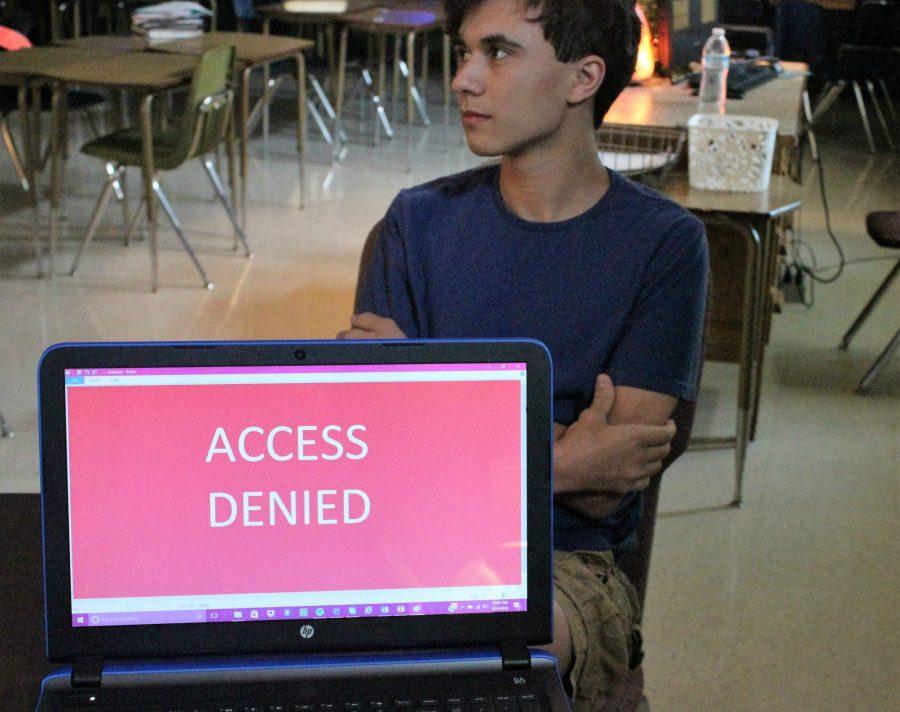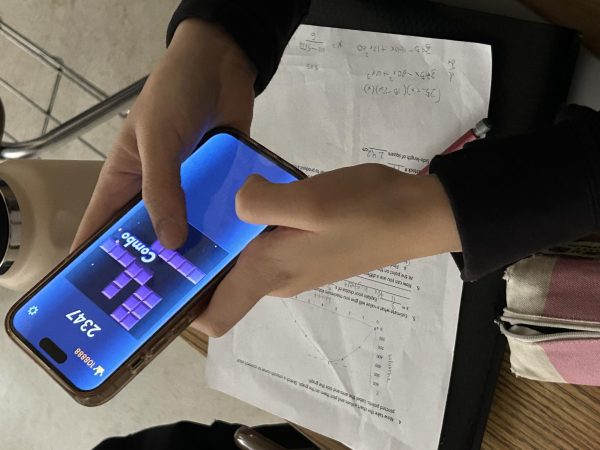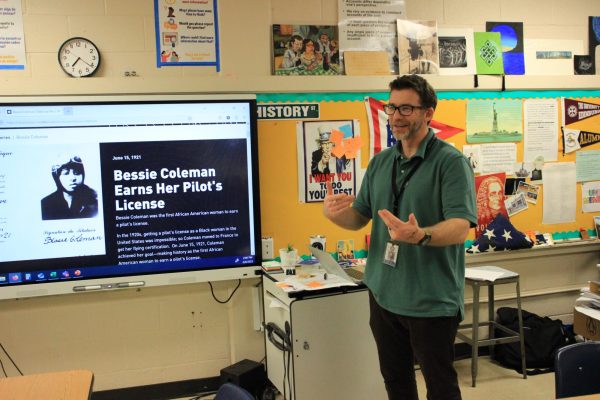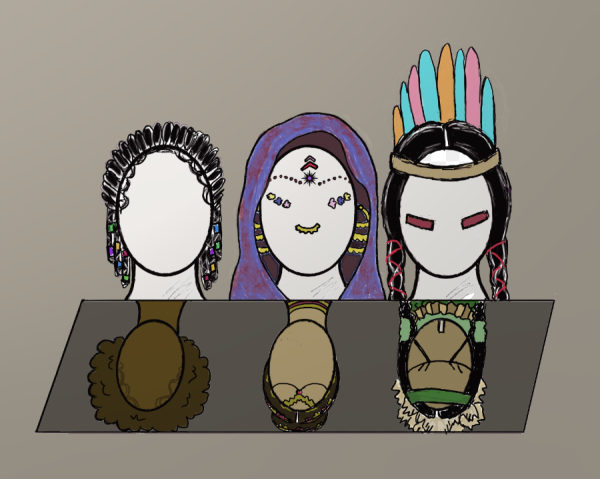Wifi problems
Caption: Murad Laradji (11) is unable to do school work without internet access
Students at White Station are confused as to why they longer have internet access on their personal devices. Classes, such as AP Computer Science, AP Seminar, AP Physics and Journalism, were suddenly unable to complete labs and classwork.
“It was not necessarily a ban, it was an overuse,” Colonel Bailey said. “There was an investigation. They had people from the district come out, and they did a survey and there were over 4,000 hits in this building on a daily basis. There are not 4,000 SCS-owned equipment in the building. It was found that there are only around 600 SCS computers in school.”
Overcrowding the school’s bandwidth, the amount of data that can be transmitted in a fixed amount of time for digital devices, caused testing sites to crash. Valuable class time was lost due to students having to re-test.
Initially, the Internet had been restricted for standardized online testing. When online
tests were being administered, students were unable to complete their tests due to the overload of devices on the school’s network. This WiFi ban allowed for standardized online tests to be completed quickly, and the school no longer faces obstacles with loading the tests.
Personal devices other than laptops can no longer be used by administrators for grading or recording teacher observations. Spanish teacher Paul Jennemann integrates technology into his classroom and curriculum by wirelessly teaching from a personal ipad.
“…I’m not able to circulate through the class like I normally would like to,” Jennemann said. “Instead, I’m next to the hardwired computer in order to go through my lessons.”
Students are also unable to work in classes that involve the implementation of technology. AP Physics students use equipment that require an internet connection in order to collect data while students in AP Research, AP Seminar and AP Computer Science use their personal devices on a daily basis. Personal laptops, tablets and other devices are also used in many other classrooms by both teachers and students.
“[The ban has] been very negative [effect-wise] in the vast majority of my classes because in most of my classes, the internet has been a critical tool in implementing educational tools for the 21st century,” Nilai Vemula (11) said.
The restriction on internet has both negatively and positively affected White Station. Administrators, students and even the principal can not use the the internet on their personal devices. Testing is no longer hindered by a slow internet connection. Although the ban cuts down on distracting and unnecessary activities, it disrupts the flow of many classes that use modern technology. In addition, the ban also handicaps many teachers who rely on the internet to teach.
Your donation will support the student journalists of White Station High School. Your contribution will allow us to purchase equipment and cover our annual website hosting costs.








































